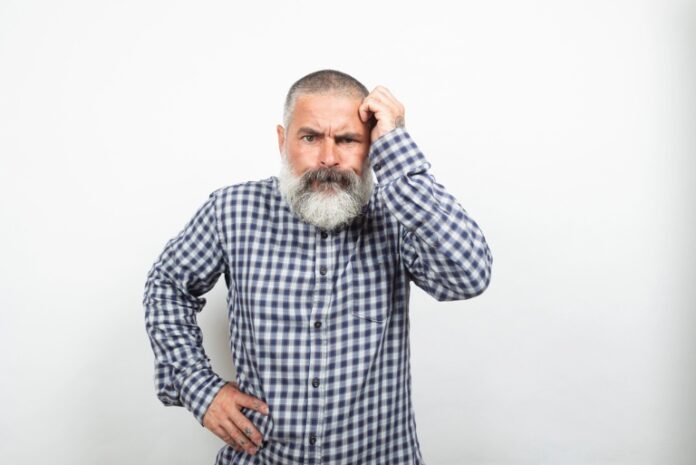Cognitive decline used to be discussed in hushed tones, almost as if losing memory was an inevitable part of aging that couldn’t be changed. That’s no longer the case. Researchers and everyday Americans alike are proving that staying mentally sharp well into later life isn’t just about luck or genetics.
It’s about lifestyle, engagement, and the right kind of support. Today’s seniors are living longer and looking for ways to make those extra years not just about quantity, but quality. They’re taking ownership of their mental health with the same determination they once used to build careers and raise families.
A big part of that shift comes from education and advocacy. People now understand that the brain can be trained like a muscle, and that cognitive fitness isn’t about puzzles alone. It’s about managing stress, staying connected, and continuing to learn.
Communities are embracing brain health programs the way they once did physical fitness. From small-town libraries offering memory workshops to online platforms that help track focus and recall, America’s seniors are making brain health part of everyday life.
When Clarity Meets Planning
Navigating healthcare can be its own mental marathon, especially when it comes to Medicare. For many older adults, this maze of choices can lead to unnecessary anxiety, and that’s where professionals step in.
Working with someone like a Medicare advisor, like those at Scottsdale, Arizona-based company Senior Advisors, can not only navigate the complexity of Medicare; their approach has saved their clients over $16 million between 2020 and 2025. That level of support frees seniors to focus on living, rather than decoding the fine print of healthcare bureaucracy.
This kind of assistance also plays a quieter, psychological role. Reducing confusion about coverage and costs helps protect cognitive well-being.
The less stress people face about money or access to care, the more energy they can channel into things that actually strengthen their minds. Cognitive resilience thrives on clarity, and clarity is exactly what the right guidance provides.
Building Habits That Feed The Brain
Science keeps uncovering the connection between what we eat, how we move, and how our brains age. The data consistently show that good nutrition and daily activity support sharper cognition. Foods rich in omega-3s, antioxidants, and flavonoids are natural allies for mental health.
The conversation around foods that boost cognitive function has expanded beyond the typical “eat your greens” advice to include an appreciation for how different nutrients interact with brain chemistry.
But beyond kale and salmon, consistency is the secret. Regular meals with whole, colorful foods, adequate hydration, and balanced protein all add up. The brain doesn’t thrive on perfection; it thrives on rhythm. Walking, gardening, and simple balance exercises do more than keep the body strong, they regulate circulation and deliver oxygen that keeps neurons firing smoothly.
The Power Of Social Connection
Isolation can quietly erode cognitive health, but connection restores it. Seniors who stay involved, whether that’s mentoring younger people, joining discussion groups, or volunteering, often show stronger recall and reasoning skills. Social connection engages multiple brain regions at once, acting as a kind of natural workout for the mind.
Even simple daily rituals, like phone calls with friends or shared meals, matter. These interactions keep emotional circuits active and help the brain maintain pathways tied to empathy, humor, and language.
Modern technology is also helping bridge gaps, letting grandparents video chat with faraway families or join online classes without leaving their living rooms. For many, that virtual presence provides real psychological nourishment.
Purpose As Mental Fuel
Purpose doesn’t just inspire, it sustains. Studies show that older adults who continue to set goals, even small ones, maintain sharper focus and motivation. Purpose gives the brain something to work toward, which naturally reinforces learning and recall. That sense of direction also helps regulate mood, which is deeply tied to cognitive health.
The American aging experience is changing because people are refusing to let purpose retire. Seniors are starting businesses, painting, writing memoirs, or learning new instruments.
They’re reframing aging from decline to discovery. That curiosity acts like mental fertilizer, encouraging the growth of new neural connections long after conventional science once said they’d stopped forming.
Why The Future Looks Brighter
This era of proactive aging reflects a cultural shift. Instead of passively accepting cognitive decline, seniors and their families are looking at prevention, engagement, and quality of life. The tools are better, the knowledge is stronger, and the stigma is finally fading.
Cognitive decline might never be eliminated, but its grip on how we define aging is loosening. With smarter healthcare navigation, attention to nutrition, meaningful relationships, and purpose-driven living, seniors across the United States are rewriting what it means to stay sharp. The brain, it turns out, has no real expiration date; it just needs to be reminded to stay curious.




